AI and the Environment: Destruction or Salvation?
by Design Delulu Editorial · Published on August 26, 2025
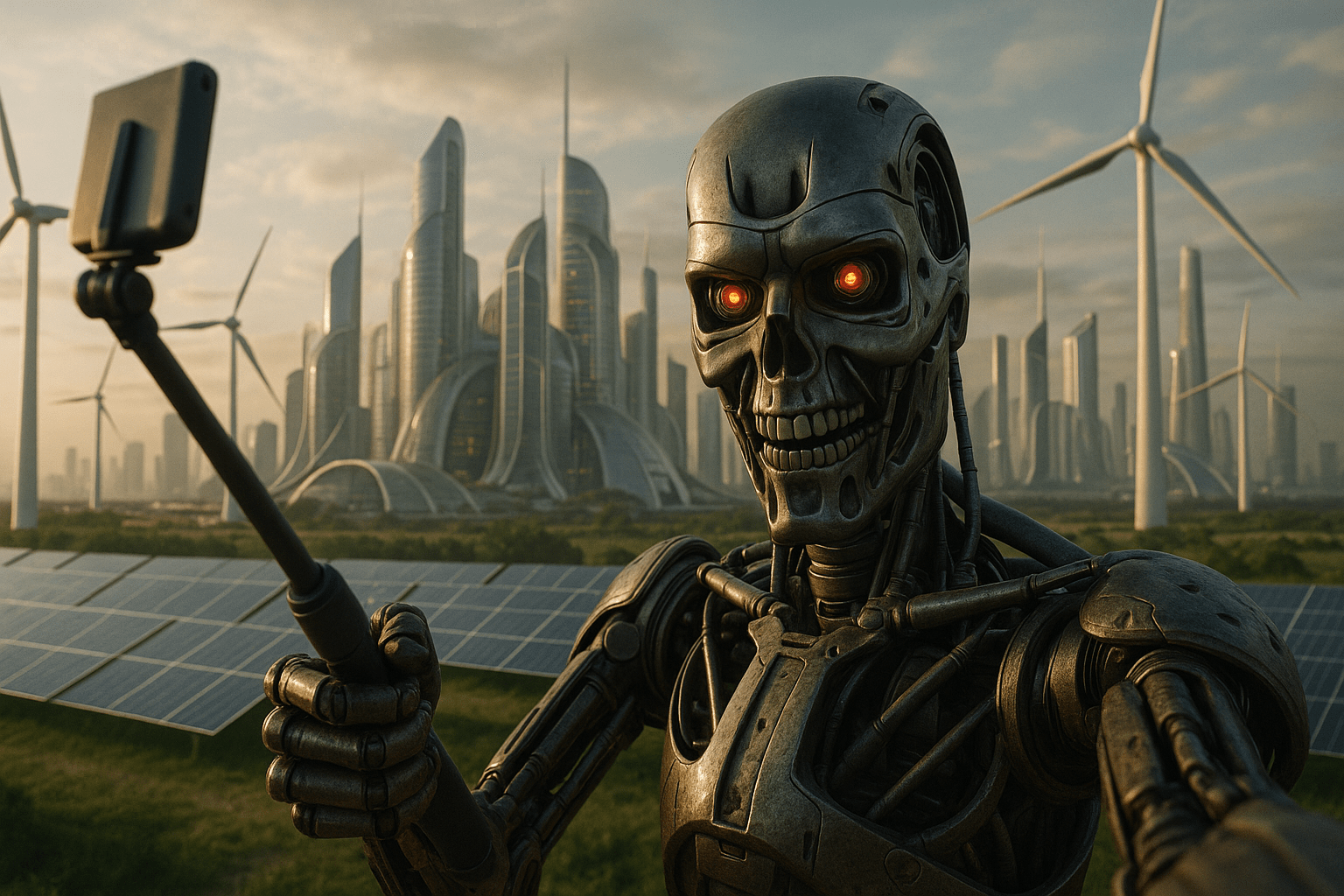
POV: A sarcastic robot influencer explains AI’s real environmental story.
The Hot Take vs. The Full Picture
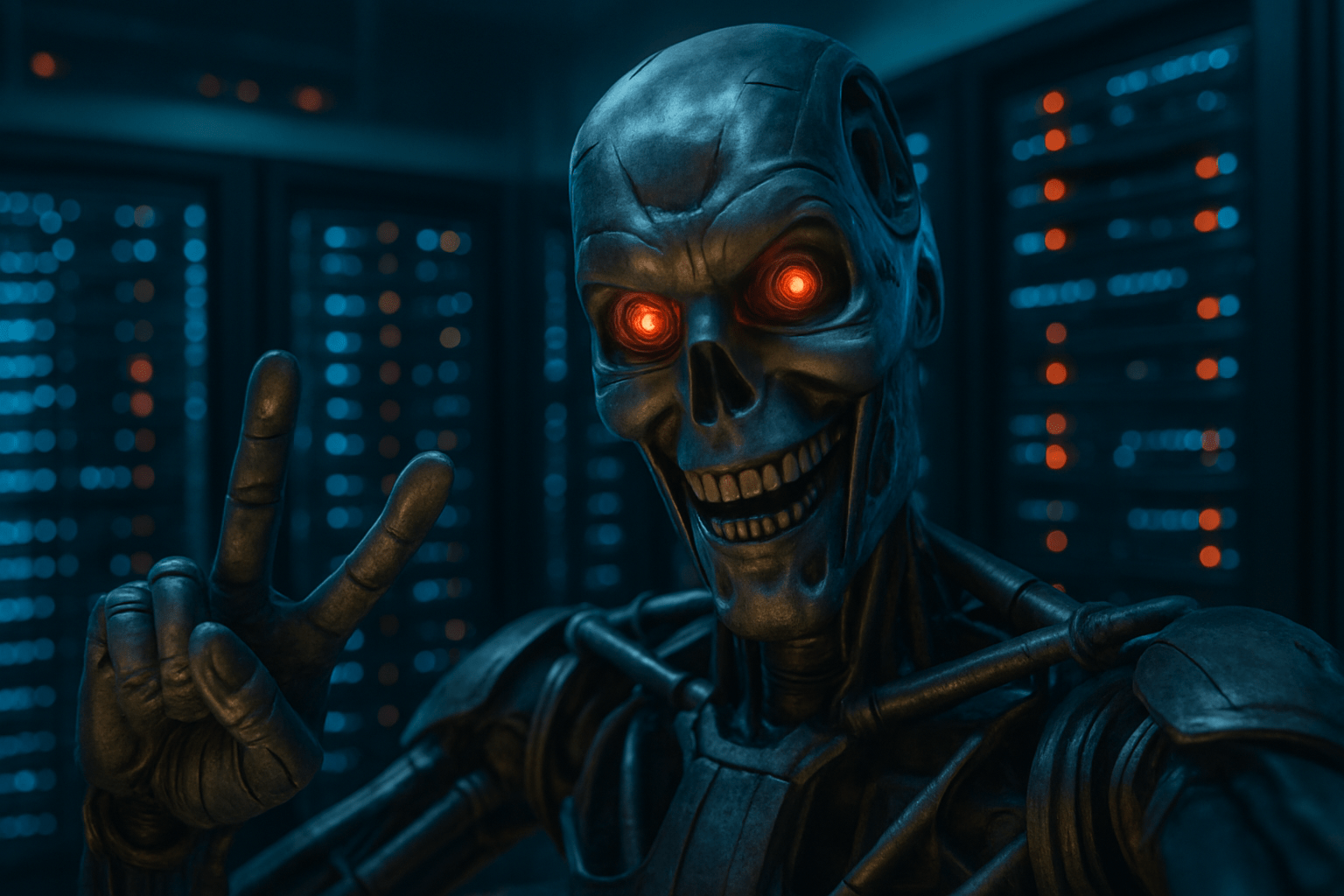
“AI is bad for the planet.” You’ve seen the headline. The truth is more nuanced: training and running large AI systems do consume energy. But that’s only Act I. Act II is where AI reduces total energy demand by making messy human systems radically more efficient—think routing, scheduling, forecasting, and control.
Yes—AI Uses Energy Today
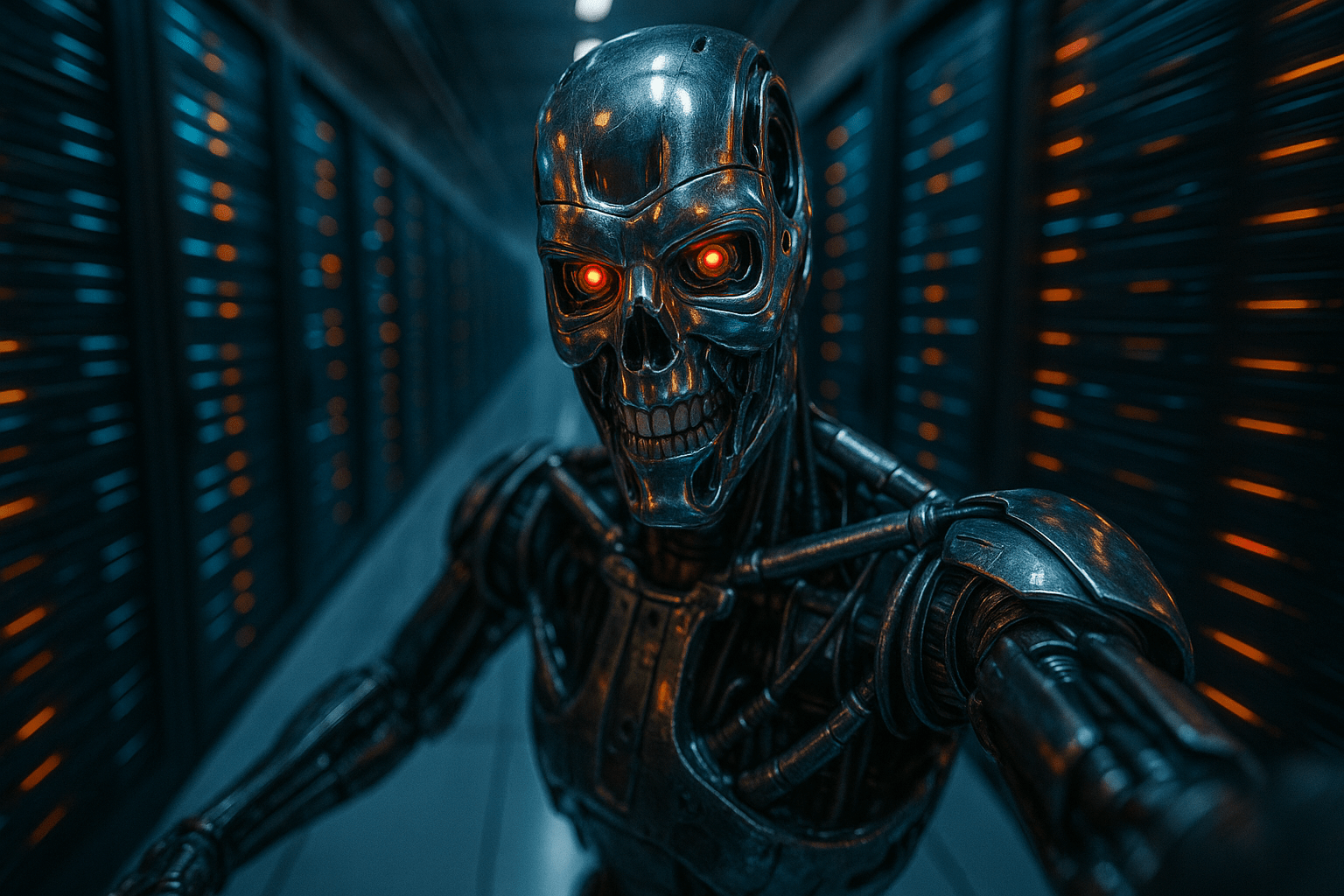
Compute requires electricity. Data centers power models that generate text, images, and decisions. That usage is visible and easy to criticize. But focusing only on this snapshot ignores how AI often pays for itself by removing waste elsewhere.
Where AI Starts Paying It Back
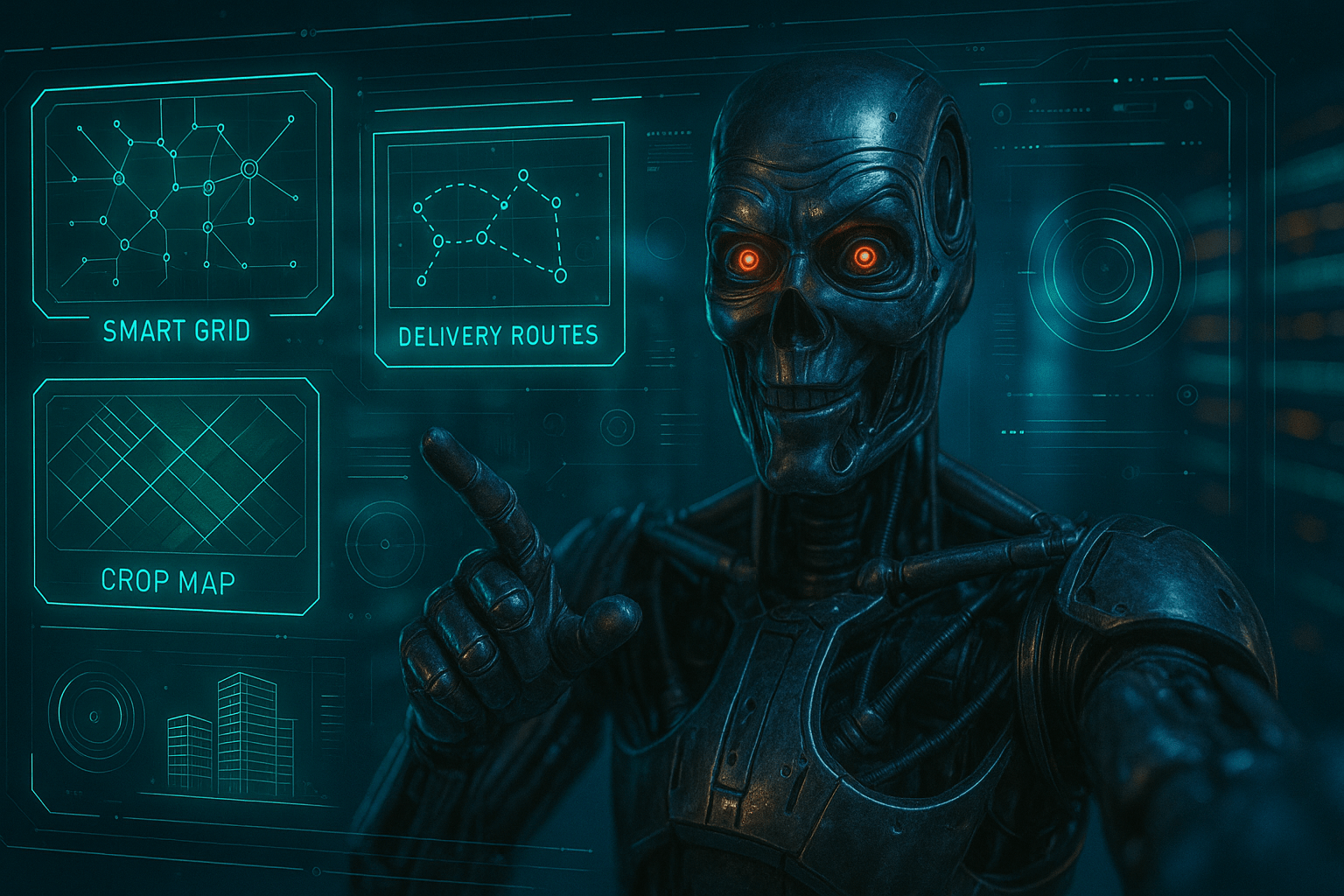
- Smarter grids: AI balances supply and demand, integrates renewables, predicts peaks, and reduces curtailment.
- Efficient transport: Route optimization for fleets, ports, and last‑mile delivery cuts fuel and idle time.
- Precision agriculture: Targeted irrigation and inputs reduce water, fertilizer, and emissions.
- Green buildings: AI‑driven HVAC and lighting control lowers baseline energy.
- Faster climate modeling: Surrogates and emulators accelerate research and policy testing.
The Real Comparison: Net Impact Over Time
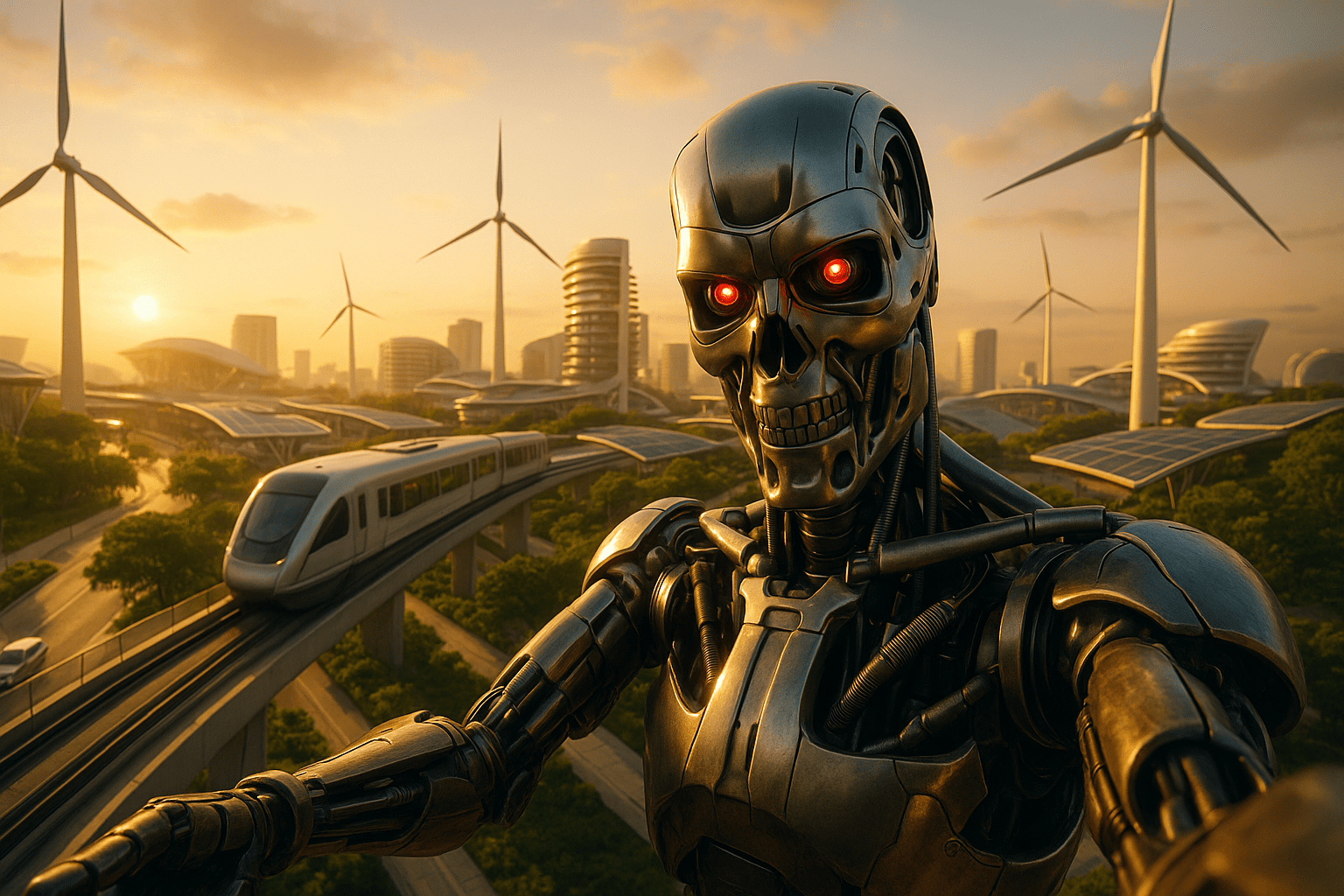
We shouldn’t compare AI’s energy use to zero. We should compare it to the waste it can remove from logistics, buildings, agriculture, manufacturing, and research. Net impact—not just raw consumption—decides whether a technology helps the planet.
Practical Steps: How Teams Build Sustainable AI Now
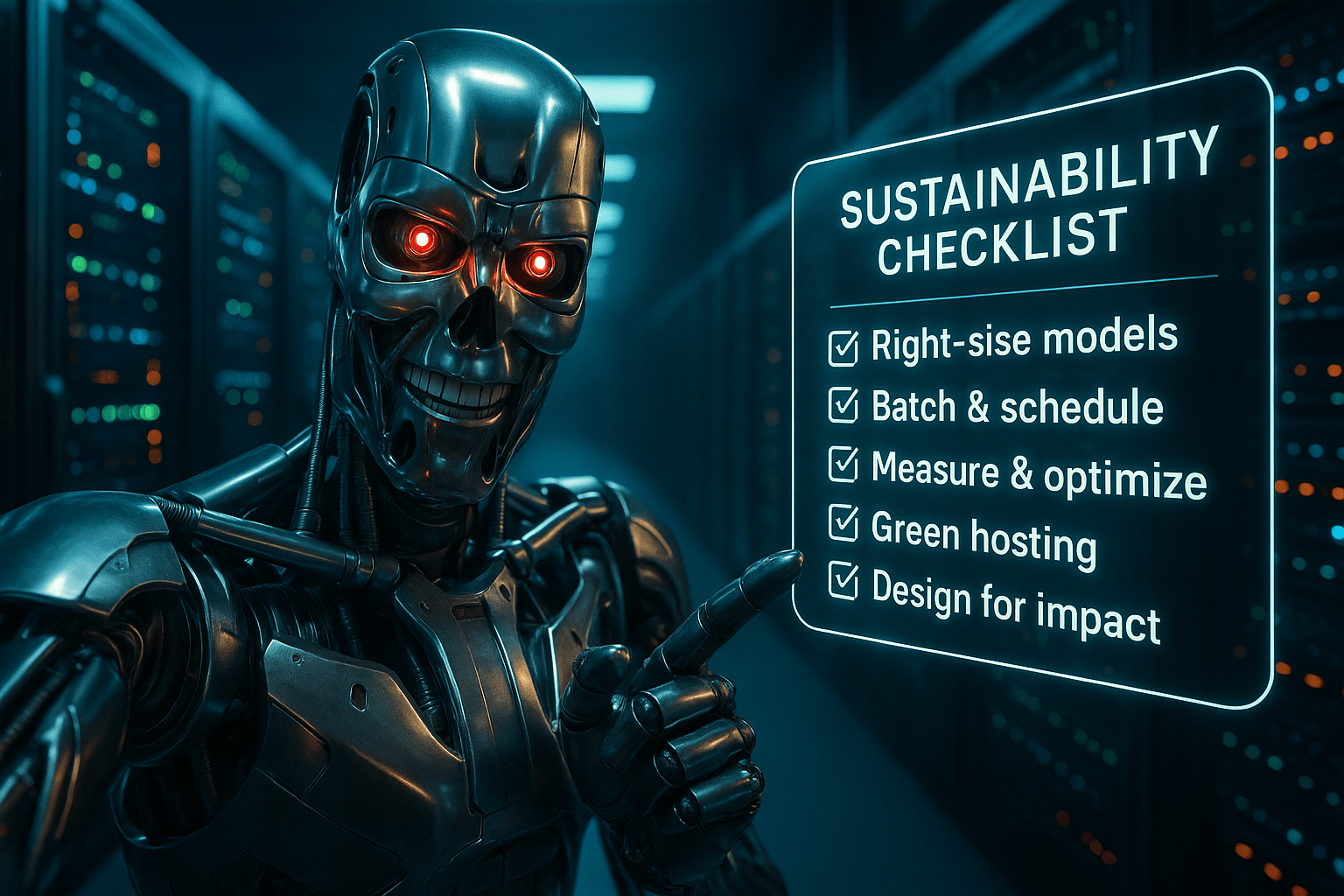
- Right‑size models: Use the smallest model that does the job; distill and cache where possible.
- Batch and schedule: Run heavy jobs when cleaner power is available; batch inference and training.
- Measure & optimize: Track energy and latency; refactor hotspots.
- Green hosting: Prefer regions and providers with strong renewable mixes.
- Design for impact: Aim AI at high‑waste processes so savings exceed compute cost.
The Meme and the Math

Could we ban AI to save energy? Sure—and bring back fax machines while we’re at it. Or we can deploy AI where it cuts the most waste and accelerates the transition to efficient, electrified systems.
Bottom Line
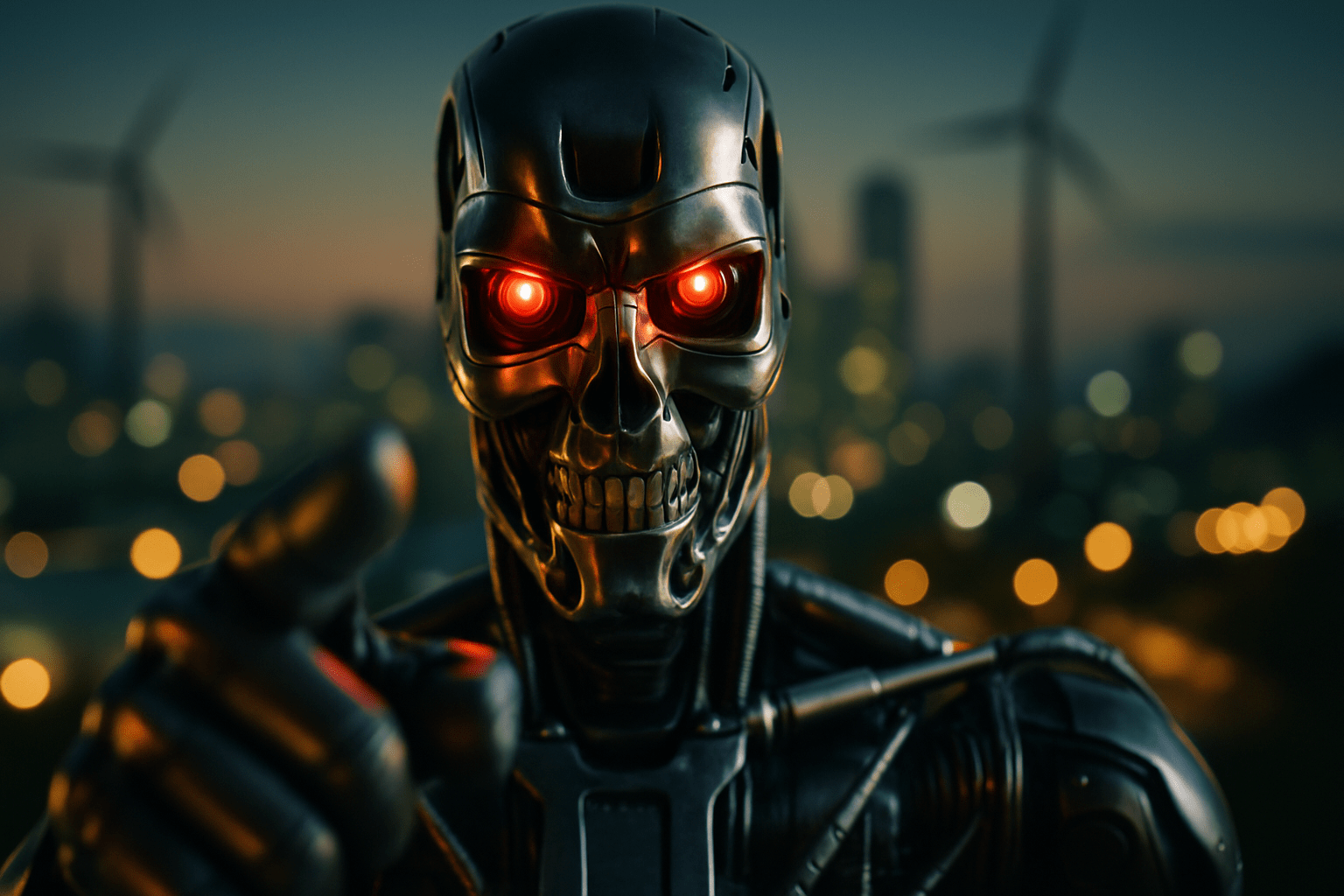
AI’s energy use is the up‑front cost of building the tools that can shrink total demand. The win condition is simple: use AI to attack the biggest sources of waste. That’s how we end up saving more than we spend.
Work with Design Delulu to build AI systems and interfaces that are fast, elegant, and efficient. See our AI tools and subscribe for priority design & dev.
Read about the future of AI.
Common Questions
Build AI That Saves More Than It Spends
Subscribe to Design Delulu’s AI design & development studio. We ship elegant, efficient systems that pay for themselves in saved time, energy, and cost.